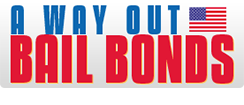What Is a Cash-Only Bond?
An individual accused of a crime will either be stuck in jail until a hearing/trial or released prior to that scheduled appearance after posting bail. However, release from jail requires compliance with specific criteria as established by the court. In some cases, the individual accused of a crime can post a specific percentage of bail through a bail bondsman. However, if the full amount of bail must be posted, the defendant has what is referred to as a cash-only bond. This means the judge mandates that the defendant cover the full cost in the form of a cash deposit, providing reassurance that he or she will return for the scheduled court date.
Why Cash-Only Bonds Are Sometimes Required
The judge presiding over your case might determine that a cash-only bond is necessary. If the judge views you as a flight risk who might leave town prior to the scheduled court appearance or if you failed to appear at a prior hearing, a cash-only bond will be considered. An arrest warrant from a separate jurisdiction or the failure to pay prior fines might also trigger a cash-only bond. In short, this type of bond is required when it is perceived that the individual charged with the crime will leave town, harm another person, or commit another crime prior to the court hearing.
Cash-Only Bond Payment
The procedure for paying a cash-only bond is not as difficult as most assume. A cash bond is posted at the court during its normal hours of operation. However, if you prefer to post the bond when the court is not open, that option is available through the jail. An individual who pays the cash-only bond at the jail is required to pay the entire amount. This means that the jail does not provide change for large bills or an inexact amount of money.
Paying the cash bond through the jail also delays the matter, creating the potential for it to take upwards of a couple weeks to move through the system and eventually make its way to the court. Everyone charged with a crime who pays bond should keep the bond receipt and bring it to the court clerk at the time of the hearing or trial.
Parties Eligible to Pay a Cash-Only Bond
Most courts permit the defendant, a third party such as our bail bondsman, or a family member to pay the cash-only bond. So don’t assume you have to pay the entirety of your cash-only bond out of your pocket at the time you are jailed. Stay positive, ask for assistance during this dark chapter of your life, and you just might be able to pay your cash-only bond and return your life to normal in a reasonable amount of time.
The Cash Bond Posts. Now What?
The court continues to hold the cash bond all the way up until the point at which the case is resolved. Adhere to the rules pertaining to your bail and subsequent court appearance, and you will be provided with a refund of the bail money, likely within a month or less. If you request that the judge exonerate the bond following the hearing, the return of the money might be expedited. The court makes an entry in the record, reducing the chances that the bail money will end up misplaced, lost in the shuffle, or otherwise delayed.
However, if the trial ends in a criminal conviction, the entirety of the cash might not be returned. Some of the money might be used to cover the fines and other financial penalties that are a component of the sentencing.
A Way Out Bonds Is a Call Away
You need and deserve a helping hand during your time of need. If you, a loved one, or a friend is jailed, reach out to A Way Out Bonds right away. You can contact our bail bonds experts by dialing 817-261-2828. Our bail bonds specialists are available 24 hours a day, 7 days a week. If you prefer to reach us online, complete our contact form, and we will be in touch as soon as possible.
